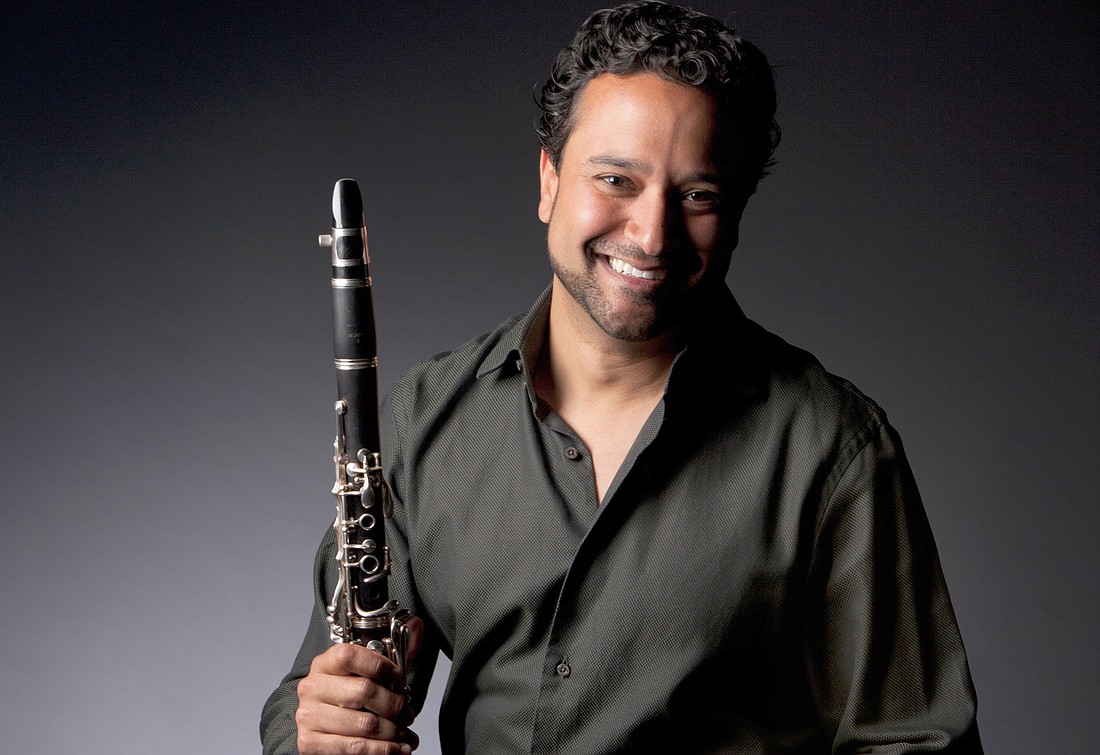- November 22, 2024
-
-
Loading

Loading

The Sarasota Orchestra ended its Chamber Series for this season with two contrasting works: The Brahms Trio for Clarinet, Cello and Piano and the Mendelssohn Octet for Strings.
The Brahms Trio, beautifully performed by Principal Clarinetist Bharat Chandra, Principal Cellist Natalie Helm, and Principal Pianist Jonathan Spivey, was actually a Brahms “add on” composed after he had decided he would write no more. But write he did. Brahms was so impressed by the playing of clarinetist Richard Mühlfeld that he felt he had to write a piece for him. Though it was not a major work of the mature Brahms, it is certainly an interesting piece worthy of its place in the repertoire, especially when given such an outstanding performance as we all heard April 19.
The entire mood of the trio is rather broad and introspective, with clarinet, cello and piano blending and interweaving musical ideas. This scale-like dialogue among the three instruments in the first movement is continued in the second, which is again immediately lyrical, sharing and tossing small motives back and forth. Yet these are the longer melodic phrases of a mature Brahms, more contemplative than assertive. There was beautiful interaction among the three players throughout.
Brahms reverted to a youthful feeling in the waltz-like third movement — reminiscent of his earlier “Liebeslieder Waltzes” — with light and contrasting sections. The final movement was an assertive alternation of duple and triple meters, reminding us that the composer had not lost any of his inventiveness in this late work.
Throughout the trio, Chandra, Helm and Spivey performed as one, passing themes, rhythms and motives about in a great example of interactive artistry.
Then here came Mendelssohn, bounding and rollicking in, with all the barely contained enthusiasm of a 16-year-old prodigy, in his masterful “Octet for Strings.”
I’m compelled to say that the Mendelssohn Octet is probably at the top of my “Desert Island” list, and to hear it played with the expertise and artistry these players brought to this performance was for me an emotional as well as musical experience. It was also one of June LeBell’s favorites, which I know added to its impact on me and some of the players, as well.
Mendelssohn’s Octet, written for double quartet, is sometimes performed in an arrangement for a larger string orchestra, but nothing can surpass the thrill of hearing eight gifted players dig into this piece with the great excitement of just playing it well, and for all it’s worth. Christopher Takeda, Samantha Bennett, Meghan Jones, and Chung-Yon Hong, violins; Steven Laraia and Matthew Pegis, violas, and Natalie Helm and Christopher Schnell, cellos, seemed to have been lying in wait for this Octet all season, for they attacked it with a controlled fury of sound and artistry that most surely awakened Mendelssohn himself, and had him smiling throughout the performance.
The Octet is a busy and active piece, with each of the eight players contributing a voice — alone, as member of two quartets, or duos or trios — depending upon how Mendelssohn was working out his themes at the time.
It’s also joyful, and must really be a wonderful piece to play, in spite of all the demands it makes on the players. At times themes rise and soar, as in the opening of the first movement; then they will be quiet and thoughtful, varied, with inversion, sharing of voices, with all the “tricks” a prodigious 16-year-old composer had up his musical sleeve. Young Mendelssohn also treated each of the eight parts as equal to the others, tossing the thematic motives about as easily as a badminton bird would be lofted back and forth.
When the cello begins that mad rush of notes that fires the starting gun for the last movement, we know we are in for a finale that is at once a blazing free-for-all — but orderly — with each player taking part, as the work ends in a blaze of notes, glory and applause from a capacity Holley Hall audience.
If anyone thinks chamber music is stodgy, then they should have heard this performance, which was at once artistically exciting and, yes, just plain fun — a fitting climax to a great chamber music series by the Sarasota Orchestra.